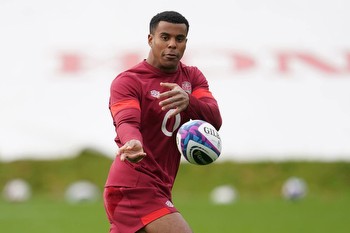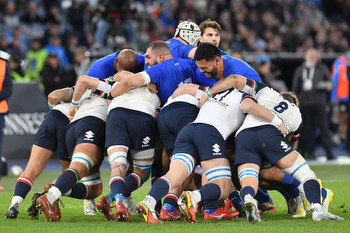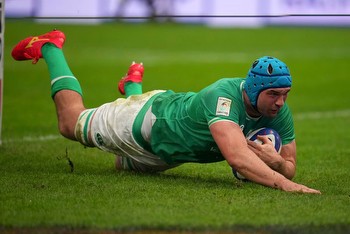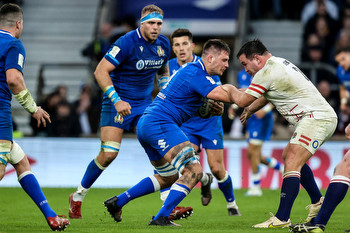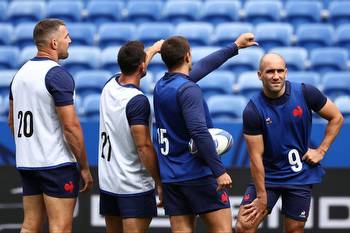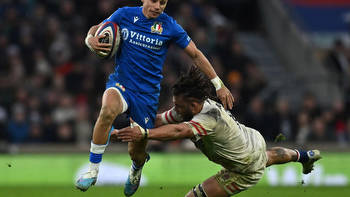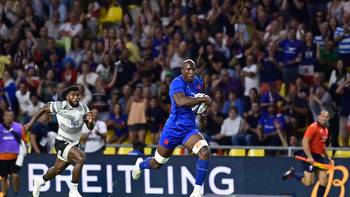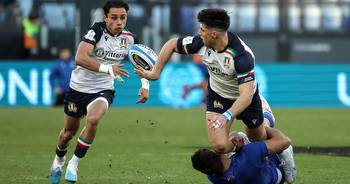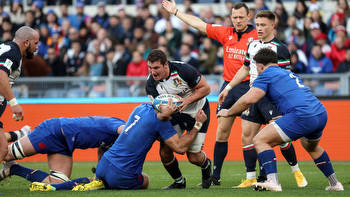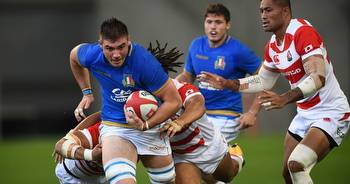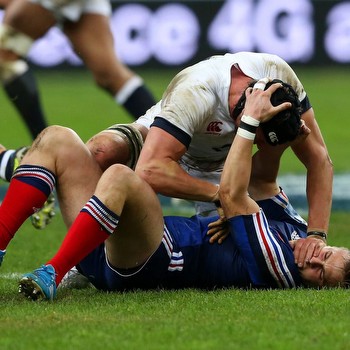Italy have spent years trying not to lose Six Nations matches
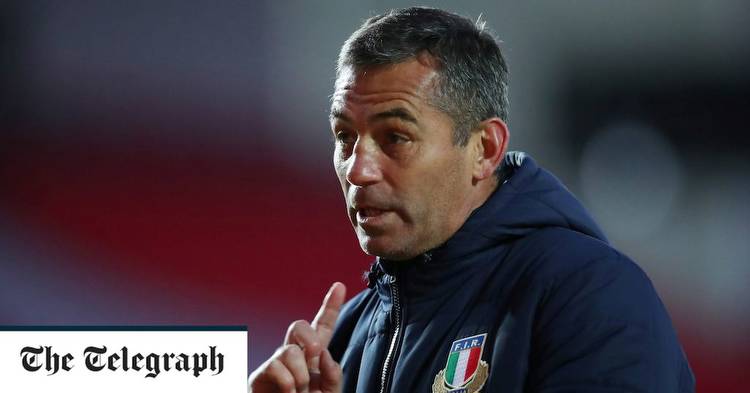
As France put the nail in yet another hefty Italian Six Nations loss last Saturday, even the most ardent supporters of the Azzurri’s inclusion in the competition might have been kneeling behind the sofa, grimacing and whispering a prayer or two upstairs. The neutral pleaded for French mercy, but Antoine Dupont et al showed little, splattering ragu all over Rome on their way to a 50-10 victory. France picked up the Giuseppe Garibaldi trophy, and Italy picked up their 28 straight loss in the tournament.
It is a lousy, wretched record – and surely the worst of all time in any of the world’s premium rugby tournaments. More generally, since Italy’s inception into the Six Nations in 2000, they have won 12 matches, the last one at Murrayfield in 2015; underdog victories all, at the heart of which were Latin passion, simmering romance, and gladiatorial physicality. Victories of conservative artisans, seldom swashbuckling artists.
To recount the modern heroes of Italian rugby, the icons responsible for those dozen victories, tells its own story. Martin Castrogiovanni, Sergio Parisse, Marco Bortolami, Alessandro Zanni, Andrea Lo Cicero, Leonardo Ghiraldini, the Bergamasco brothers; well-known names and fine players, but all bar one – Mirco Bergamasco – was a forward, while Mirco was a wing whose foremost strength was goal-kicking. Alessandro Troncon and Diego Dominguez are two of Italy’s most celebrated backs, but the former’s value was ball-in-hand sniping while the latter kicked goals as well as anyone in the history of the sport.
It was on Mirco and Dominguez’s boot-laces that most of those dozen Italian wins were crafted, as well as ferocity and aggression in the tight quarters. There was little expansion, little creativity, and, dare it be said, little positivity. Italy’s approach always seemed to be founded on stopping the opposition from winning rather than actively aiming for the win themselves; negative short-termism that was highly effective but only due to the one-of-a-kind generation of players with which the Azzurri were blessed.
At the time, of course, no one could have blamed them. When you have the world’s pre-eminent tighthead prop and No 8, as well as other world-class forwards, who needs backs? The negativity of Italy’s 10-man rugby was forgiven and overlooked when it was successful due to the incessant sporting veneration of an underdog; everyone wanted the new kids on the block to take a chip off the old guard’s shoulder – and it didn’t matter how they did it.
But now it does matter. The Azzurri can no longer rely on that once-in-a-generation crop of world-class forwards and their departure has left Franco Smith’s current side battling, and trying to rectify, an identity imbroglio. Smith has now been tasked with transforming Italy from a side trying not to lose matches into one trying to win them. Patience was always going to be crucial in the transition from negativity to proaction.
Italy still have some outstanding forwards – Jake Polledri, Danilo Fischetti and Sebastian Negri to name three – but the forward dominance around which their game once revolved can no longer be relied upon. The Azzurri scrum was pulverised by France last week, and their lineout at times was so ponderous that it seemed as if the pack had popped a Xanax pill before the throw.
One might expect that Castro et al saw last weekend’s damning loss, and perhaps every damning loss, as another cinquedea through their hearts, a brick removed from the Rome that they built. The truth, however, is that the only area in which erstwhile Italian sides have been more successful than the incumbent is in the winning of matches. That might sound insane in such a results-driven business, but Italy have forsaken a win-at-all-costs modus operandi in favour of developing a strategy and a 15-man team that can menace from all areas; an expansive team whose backs pose as fierce and turbulent a running threat as their forwards, with a rounded attacking package. This is an Italy the like of which has been seldom seen in the rugby world.
In Paolo Garbisi, they have found their best fly-half since Dominguez, a matador who can strafe through a hole just as easily as he can guide a team-mate into one. He is part of this cabal of young, European playmakers – along with France’s Matthieu Jalibert, Romain Ntamack and Louis Carbonel – who control, concoct and connive their way around a rugby pitch, and are stepping up to international rugby with a refreshingly carefree zeal. Garbisi is the man around which Italy must build this side. He was phenomenal against Scotland in the autumn - a match in which full-back Matteo Minozzi might have scored Italy's greatest try against a 'Tier One' nation.
Outside of the swaggering stand-off, centre Marco Zanon packs a punch in midfield while the back three of Monty Ioane, Jacopo Trulla and Luca Sperandio showed against France that they could cause problems in open pastures, while fans of Wasps will be well aware of Minozzi's class. At times against Les Bleus, especially in the first half, Italy attacked with midfield precision and penetration and, outside of silky half-backs Garbisi and Stephen Varney, the centres looked skilful and organised, an observation that could not have been attributed to many of the “winning” teams.
Italy let themselves down with sloppy, individual errors on Saturday, but the beginnings of 15-man fluency were evident. Yet, calls to boot them out of the Six Nations continued in earnest. They are not even worth dignifying with a response. What could such laziness and myopia achieve? How would that aid the development of a nation whose production line is still churning out talents such as that of Garbisi and Polledri? It is worth remembering that Georgia have never beaten the Azzurri and, if their attacking intent, intelligence and intrepidity continues to develop, that is unlikely to change soon.
Franco Smith’s men, like one of Chianti’s finest, will enhance with age. Give them time to breathe; don't punish them for going back to the drawing board.


